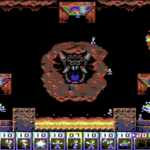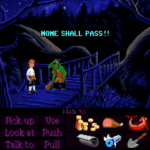Reckon playing video games as a kid made you smarter? That seems to be the thinking behind a new AI development that uses classic games to develop algorithms that enable problem solving by robots.
Games such as Montezuma’s Revenge (1984), Freeway (1981), and Pitfall (1982) have been employed, with the platform scrollers intended to help robots navigate real world environments.
Researchers Adrien Ecoffet, Joost Huizinga and Jeff Clune told the BBC “The reason our approach hadn’t been considered before is that it differs strongly from the dominant approach that has historically been used for addressing these problems in the reinforcement learning community, called ‘intrinsic motivation’. In intrinsic motivation, instead of dividing exploration into returning and exploring like we do, the agent is simply rewarded for discovering new areas.”
The games have been used to develop a family of algorithms, collectively known as Go-Explore. “Think about asking a robot to get you a coffee: there is virtually no chance it will happen to operate the coffee machine by just acting randomly… In addition to robotics, Go-Explore has already seen some experimental research in language learning, where an agent learns the meaning of words by exploring a text-based game, and for discovering potential failures in the behaviour of a self-driving car.”
Learning to drive by playing Pitfall? If only it was that simple for humans…
Affiliate Disclosure: Some of the links in this post may be affiliate links, which means I may earn a small commission if you make a purchase through those links. This comes at no extra cost to you. Thank you for your support!
Christian Cawley is the founder and editor of GamingRetro.co.uk, a website dedicated to classic and retro gaming. With over 20 years of experience writing for technology and gaming publications, he brings considerable expertise and a lifelong passion for interactive entertainment, particularly games from the 8-bit and 16-bit eras.
Christian has written for leading outlets including TechRadar, Computer Weekly, Linux Format, and MakeUseOf, where he also served as Deputy Editor.
When he’s not exploring vintage consoles or retro PCs, Christian enjoys building with LEGO, playing cigar box guitar, and experimenting in the kitchen.






